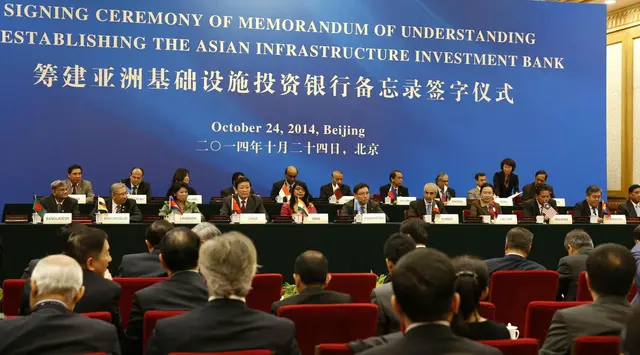It is necessary for Thailand to handle its political crisis to save the economy from downside risks and to regain foreign investors' confidence, said Charl Kengchon, Managing Director of Thai Kasikorn Research Center.
During an exclusive interview with Xinhua in Thai capital Bangkok, the Thai expert said the ongoing political instability has been weighing on the Thai economy.
"The impact that we are seeing is the disruption in disbursement of government fiscal spending. Since the current government is just a caretaker, they cannot pass the budget act for the next fiscal year, which will start in October," Charl said.
This fiscal year will finish at the end of this September; therefore, the new budget will start in October. Thus, the new budget for the new fiscal year must be passed before the end of September.
Normally, it takes a government about five months to have the budget draft passed by the parliament. If the political demonstration is supposed to end in July, then it depends on whether the government can come up with budget law in only two months, before the end of September, he said. "The process to pass the budget often takes months, which normally starts in April. The government often discusses the budget draft in April then submits it to the parliament in July to get it passed in September," Charl explained the process.
"Since Thailand has no parliament at the moment, the current government is just a caretaker, and the general election is still undone yet, there is no way to pass the budget law. It will limit the amount of spending that the government can spend after September. Then it is going to impact the economy," he said.
"Now all the country's investment projects are frozen as there is no money pouring in. Most of important projects, including those in infrastructure or flood prevention, are under consideration and review by the court procedure, so the government cannot do anything."
Charl took the two-trillion Baht (61.1 billion U.S. dollars) investment project for example. He said the process of the two- trillion Baht investment project has been challenged at the constitutional court.
As a caretaker, the government cannot go out to borrow money, so they clearly cannot invest in such a huge project, which is said to benefit infrastructure project development at a regional level. "I think that Thailand is going to have no big investment project this year. The uncertainty of political crisis is going to disrupt the fiscal spending for the whole year."
The escalating political unrests in Thailand are expected to pull down the country's economic growth.
"Economic growth this year is expected to stay lower than target, about three percent, but there are still some possibilities of downside risks depending on the length of political crisis."
The political uncertainty would cost the country some 1-1.5 percent of economic growth, Charl said, saying Thai economy was earlier forecast to grow by 4-5 percent in 2014.
"In case of still no government by midyear, no economic measure and no budget spending could be implemented. The downside possibility is that the growth could be under three percent," he said.
If the political turmoil is to end in June or July, the government would need at least one or two months to draft up the new budget act, speed up spending and come up with economic stimulus programs, and then Thailand, with its best efforts, could start its recovery in one quarter after the conflict ends, he said.
Charl pointed out that after jumping out of the political crisis, it is necessary for the Thai government to regain foreign investors' confidence, after leaving them in a long-time worrying.
"They have to show with foreign direct investors who want to invest in Thailand that the country has plans and strategies for long term growth and economic development. Thailand commits to see the country getting the most out of the ASEAN Economic Community in 2015."
"Thailand should tell investors that it is going to invest in projects to upgrade key infrastructures to make everything ready for foreign direct investment before 2015, and to come up with some kinds of investment packages," Charl suggested.
Thailand witnessed a slowdown in economic and trade development as an impact from the continuously protests and violence since late 2013. Thailand in 2013 saw the first trade deficit in the past four years. At the same time, the business confidence index for December 2013 stood at only 45, the lowest level since the devastating flood in 2011 and the sixth consecutive declining month.
However, Charl still expressed his positive outlook over Thai economic development after the political conflict ends.
"If there are solutions for the political instability, and the government can talk and compromise with demonstrators to solve differences this year, I think Thailand will have a chance to rebound next year, and then we can see the country's economy grow at 4-5 percent in 2015.
"Together with the recovery of the United States and the European Union economies, I believe that Thailand would see a better trade growth in 2014, especially in exports," the expert said, adding that the country's exports are expected to grow at about five percent in 2014 compared to a contraction of 0.3 percent in 2013.
Charl Kengchon
Managing Director of Thai Kasikorn Research Center
 简体中文
简体中文

